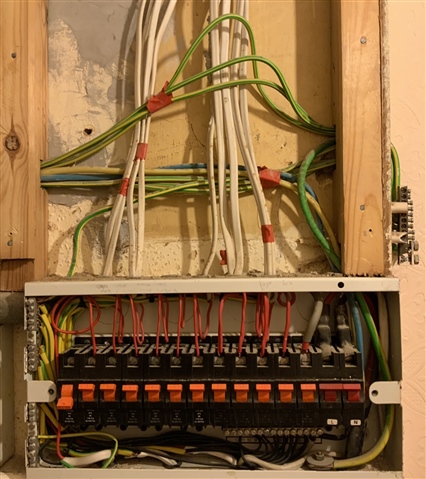I was watching a bit of a Youtube video, which showed a DB with very "tidy" wiring, of the type that now appears to be in vogue. A large number of circuits were all bundled and cable tied into a very neat cable form of the type found inside Electronic equipment. The length of this was probably a couple of feet, so comes under the regulations for derating of cables in close proximity, and the overall rating of each circuit was probably 1/4 of that the designer expected. The cables inside switchgear should all be loose and as far as possible in free air to keep temperatures within limits, and as you know DBs get quite hot even with this arrangement. How have we got to this situation of incompetence? I did leave a comment, but this will probably be removed!

